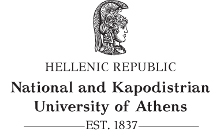School of Economics and Political Sciences
Department of Political Science and Public Administration
PARASKEVI BAZOTI
Doctoral Dissertation in progress
"The Intergenerational Social Mobility in the Comparative Political Economy: The Case of Europe"
Commencement date: June 22, 2021
Abstract
During the last years, economic inequality stands out more and more as a central issue on the public speech. Since the late 20th century, up until today, developed economies experience increasing levels of income inequality making it one of the key issues of the modern era that concerns academics, political leaders, international organizations and the public opinion. The consequences are multifaceted and passed down from generation to generation, creating conditions of intergenerational inequality and low social mobility. However, the patterns and extent of both income inequality and intergenerational social mobility vary according to the circumstances as they depend on national models of growth. Taking into account the above, the proposed dissertation aims to investigate, the patterns of intergenerational mobility in the countries of the European Union and their respective growth models, with the use of theoretical and quantitative research tools. Ultimately, it seeks to examine the potential establishment of a causal relationship as well as the underlying mechanisms. In more detail, it will attempt to study intergenerational mobility as a dependent variable and the growth models as the independent variable in the context of the analysis provided by the literature of the Comparative Political Economy, in order to define the institutional, political and economic factors affecting it. In terms of methodology, the research will follow the comparative case study method and in particular the Qualitative Comparative Analysis (QCA).
